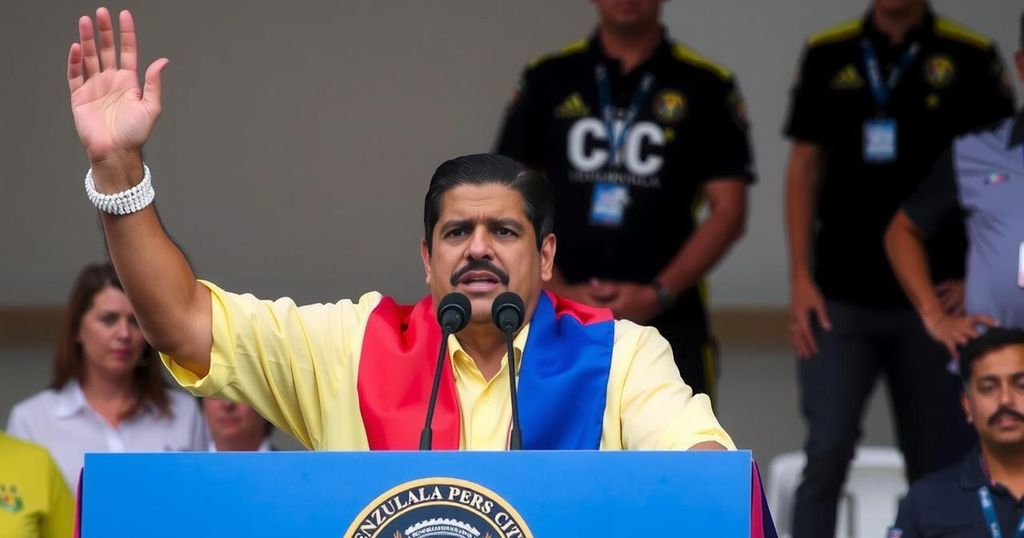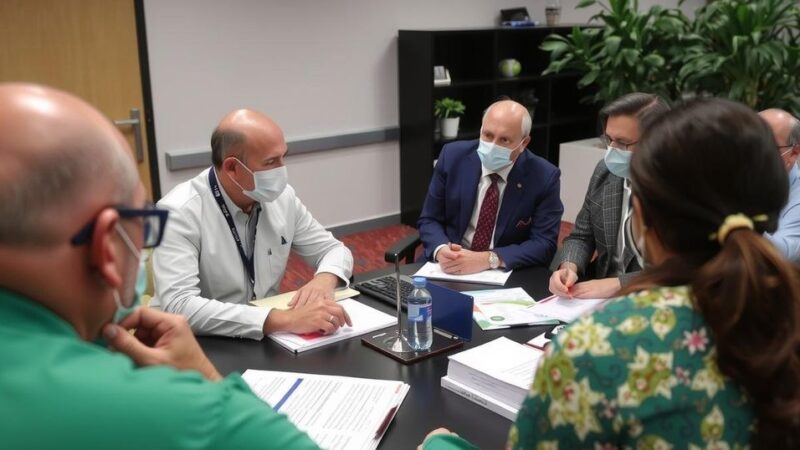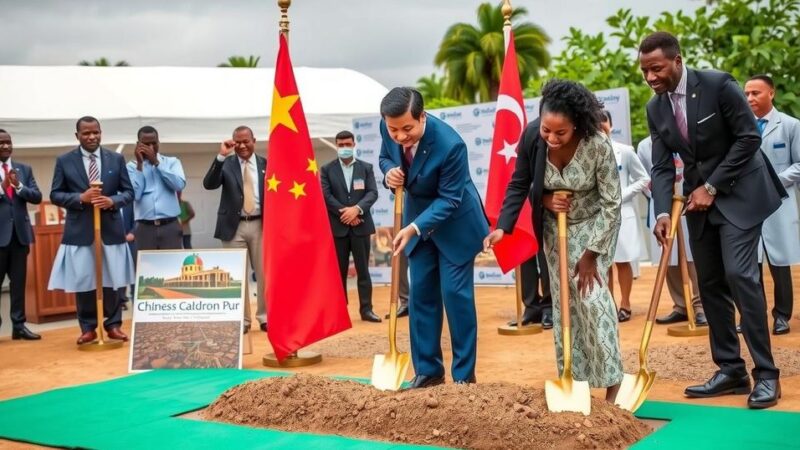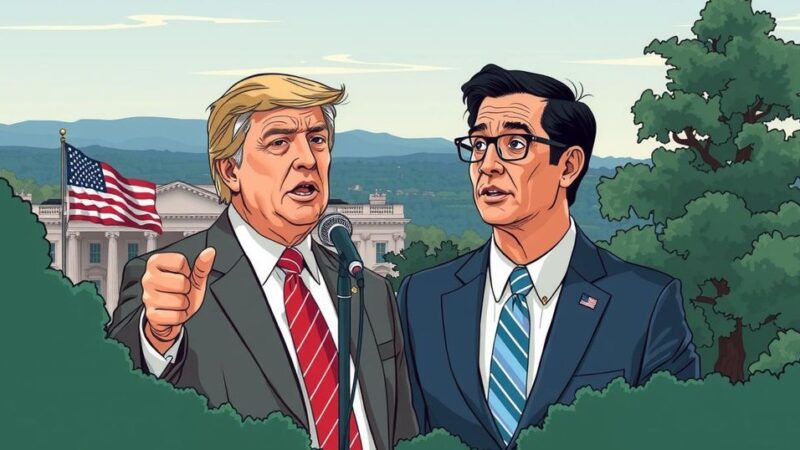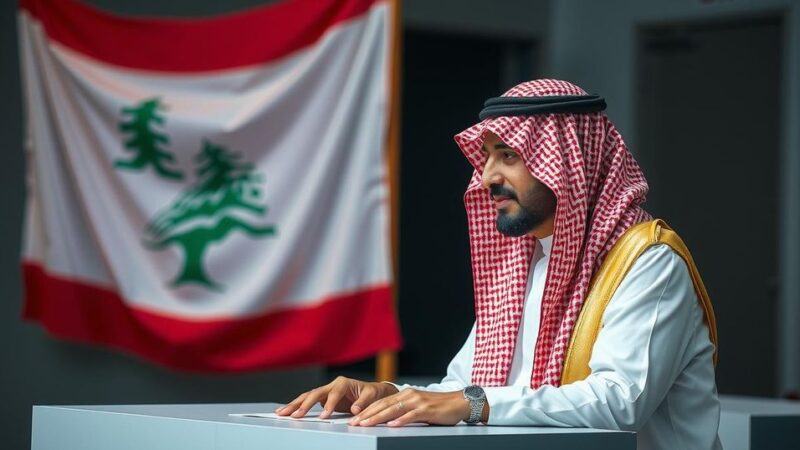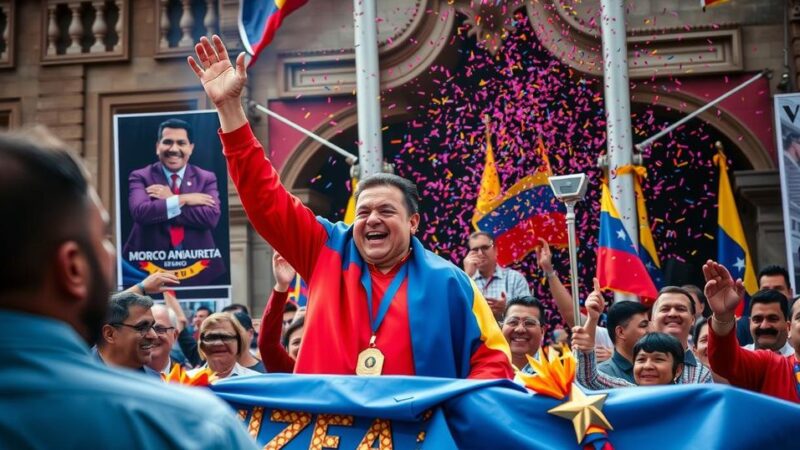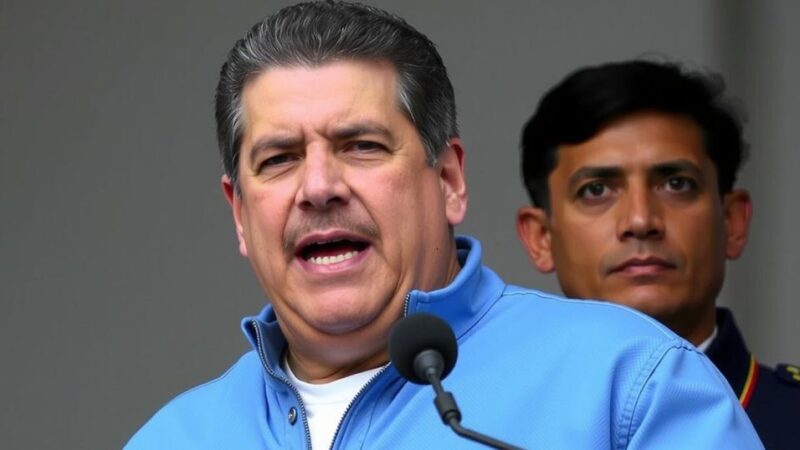Nicolás Maduro prepares to be inaugurated as president of Venezuela today, amidst widespread allegations of electoral fraud and absence of major foreign leaders. Opposition candidate Edmundo González claims a resounding victory and intends to enter the country to be sworn in. The lead-up to the inauguration has seen arrests of activists, heightening fears of state repression, while public demonstrations against Maduro’s regime intensify the political crisis.
Nicolás Maduro is set to be inaugurated as the president of Venezuela today, January 10, but will do so amidst significant controversy and absence of major foreign leaders. For the past six months, the international community has urged him to present electoral records to validate his claimed victory, a request he has repeatedly ignored. This inauguration takes place under a veil of paranoia and fear among Maduro’s government, which has intensified state militarization and closed land borders amid rumors of potential invasions.
Contrastingly, the political narrative this day may belong to Edmundo González Urrutia, the opposition candidate who asserts he will enter Venezuela and be sworn in as president instead. González has gathered overwhelming evidence of electoral support, securing victories in all 23 states, as verified by credible organizations such as the Carter Center and the Organization of American States. His determination poses a significant challenge to Maduro’s presidency and raises questions about the political future of Venezuela.
The lead-up to this event has been fraught with tension, marked by arrests of opposition figures and activists. For instance, Edmundo González’s son-in-law was detained as he took his children to school, and notable activists like Carlos Correa have disappeared in the upheaval preceding the inauguration. Despite accusations of having distanced himself from political struggles by previously signing a document acknowledging Maduro’s victory, González has refuted this, claiming coercion, and has expressed clear intent to assert his legitimacy.
Throughout the region, the power dynamics are shifting, with increasing speculation surrounding González’s possible actions upon his return. Although scenarios of symbolic territory claims emerged, those close to him affirm his unyielding commitment to enter Venezuela directly, even if it means facing arrest. His age and the legal framework pertaining to his situation might favor him towards house arrest rather than incarceration.
Additionally, Maduro’s inauguration is shadowed by public demonstrations against his regime, with María Corina Machado leading resistance efforts despite facing government persecution. Clashes between supporters of Chavismo and opposition groups have intensified, showcasing the deep divisions within Venezuelan society. Machado’s attempts to mobilize support for González have raised her profile significantly, even as she endures threats of arrest.
At this pivotal moment, international participation reflects ongoing complexities; while nations like Brazil, Mexico, and Colombia send representatives, they do so without officially recognizing the legitimacy of Maduro’s victory. Notably, Chinese and Russian delegates are also set to attend, indicating their strategic alliance with his administration. In the backdrop, dramatic displays such as drone representations of Maduro demonstrate a regime that continues to assert its presence amid rising dissent.
The political atmosphere surrounding Nicolás Maduro’s inauguration in Venezuela is characterized by profound instability and lack of international legitimacy. Despite his claims to have secured victory in a fiercely contested election, the absence of credible electoral records has rendered his presidency highly contentious. The rivalry with opposition figures, notably Edmundo González Urrutia, raises questions regarding the legitimacy of governance in Venezuela as factions grapple with allegations of fraud and state suppression. The situation is compounded by heightened security measures and aggressive actions by the Maduro administration against dissenting voices, further polarizing the population. Political dynamics in Venezuela face significant challenges, as the credibility of electoral processes and governance is under scrutiny. This contest between the government and opposition forces has created a precarious situation, wherein the actions taken today could drastically shift the landscape of Venezuelan politics. Given the backdrop of societal unrest and international isolation, the stakes are alarmingly high.
In conclusion, Nicolás Maduro’s inauguration is set against a backdrop of controversy, with no significant international acknowledgment of his presidency. The legitimacy of his claims is questioned, with opposition leader Edmundo González Urrutia poised to challenge this narrative by asserting his electoral victory. The events leading up to today have emphasized the deepening political crisis in Venezuela, highlighting escalating tensions, as well as the resilience of opposition forces. As the situation unfolds, the international community watches closely, hopeful for a resolution to this ongoing conflict that continues to grip the nation.
Original Source: english.elpais.com

